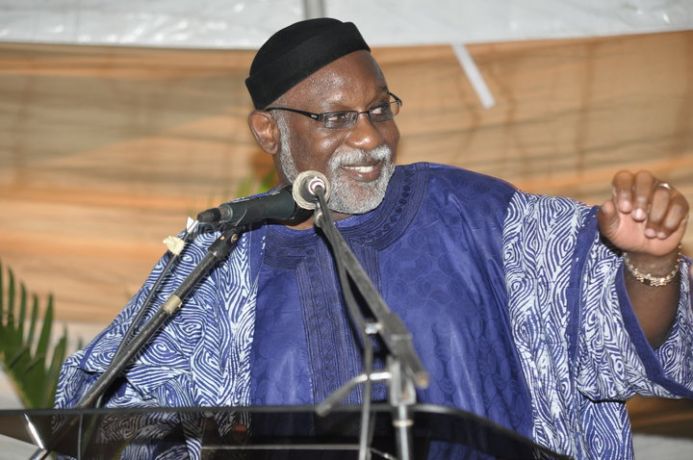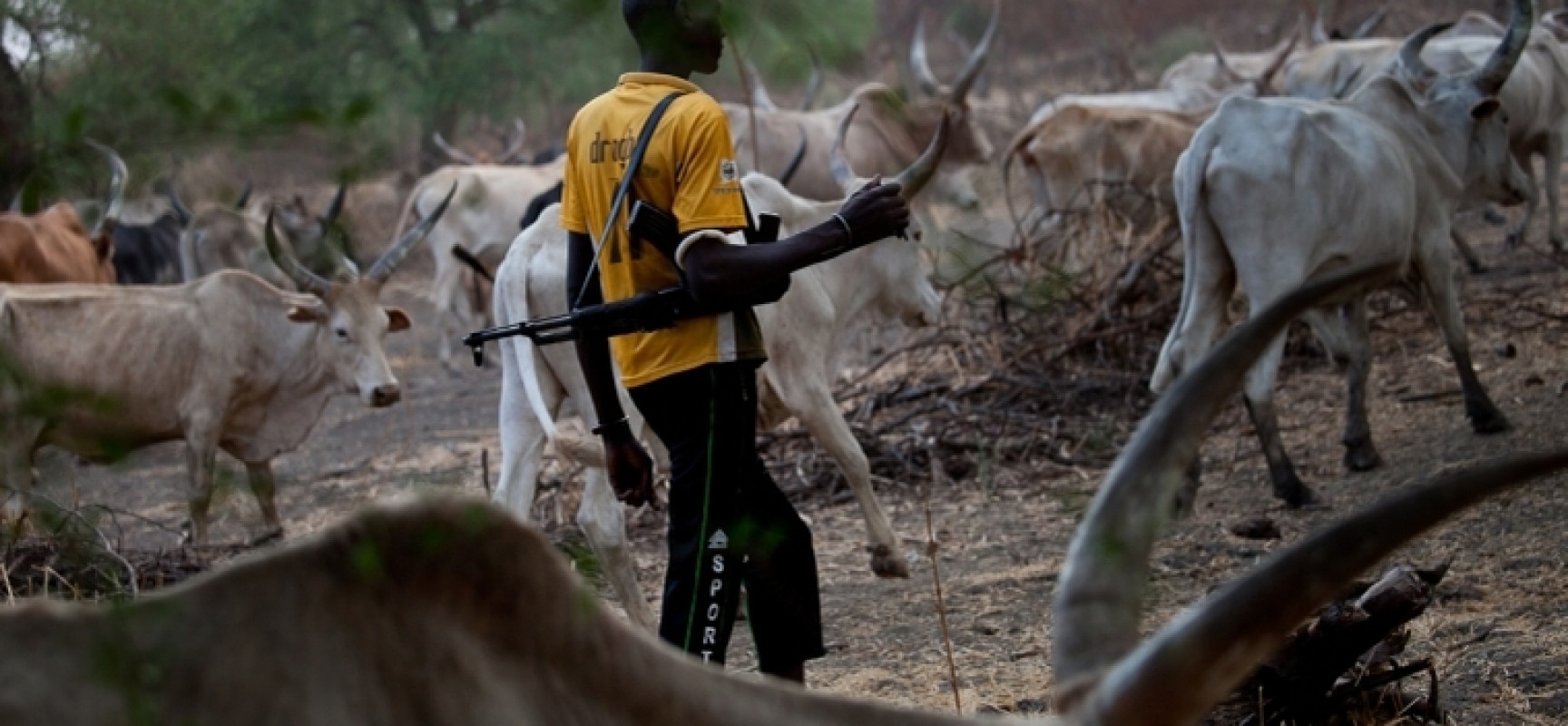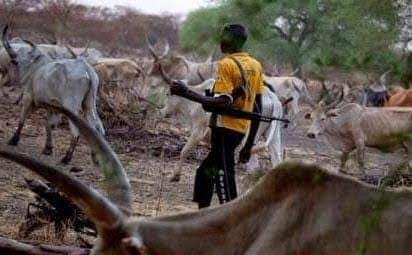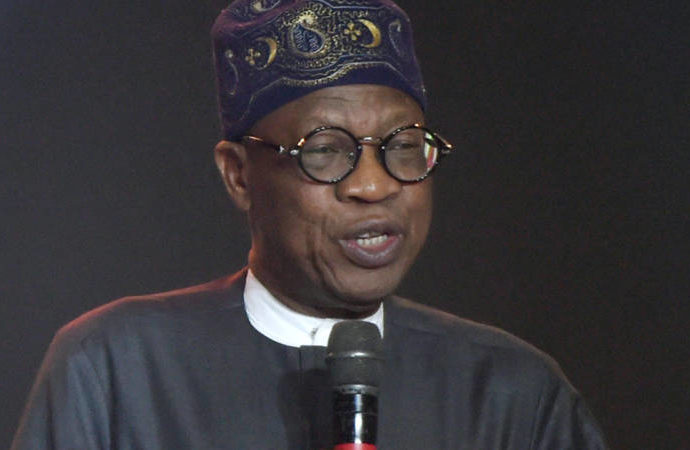The National leader of the ruling All Progressives Congress (APC), Asiwaju Bola Ahmed Tinubu on Monday identified the major challenges and also proferred solutions to recurring farmers/herders crisis in Nigeria.
Tinubu noted that water, or more accurately the lack of it, is at the heart of consistent conflicts between farmers and herders in parts of the country.
He suggested both short and long term solutions to the lingering crisis that has left many dead and others displaced.
Also, a former Chairman of the Economic and Financial Crimes Commission (EFCC), Mallam Nuhu Ribadu, said that because the nomadic Fulani have not been integrated into the country, they had been moving in search of land where they will be regarded and treated as other Nigerians.
Ribadu underscored the fact that it was wrong to ascribe the clashes to President Muhammadu Buhari.
He said that it was obvious that the native Fulani were angry with President Buhari for allegedly turning his back on them and not giving them audience like he does to other groups.
Tinubu and Ribadu spoke at a two-day national summit on conflict resolution organised by The Nation and Television Continental (TVC) as part of their contribution to finding a lasting solution to the bloody farmers/herders clashes.
Speaking through a Federal Executive Commissioner (South West) in the Nigerian Communications Commission (NCC), Mr. Sunday Dare, Tinubu said the government must sustain wise policy and action to keep peace and prevent violent recurrences.
According to him, the government must also maintain reasonable and effective military and law enforcement presence in the affected areas.
The security operatives, he said, should work with leaders of the herders and the farmers in the communities as well as traditional and religious leaders.
On the long term solution, Tinubu said that Nigeria needed to take the lead for Africa in international fora dealing with climate change as well as develop what he called “water catchment and conservation systems”.
Tinubu said: “My contribution will not be filled with statistics, graphs and figures. It will have more of a conceptual or strategic bent.
“I take this route because the challenges we discuss are complex and encompass more than meets the eye.
”In order to adequately address these challenges, we must sufficiently define what they are.
”Sensational media headlines and much of public opinion have concluded that the conflict between herders and farmers is inherently a religious or ethnic scrum.
”This conclusion is understandable. The most visible thing seen are two groups predominately of different religions and ethnicities contending against each other.
”However, wisdom counsels against hasty conclusions. Sometimes that which is unseen is more important than that which is visible.
”For instance, gravity and the magnetic field affect everything we do but we cannot see these fundamental forces of the physical universe. Yet, anyone who walks to the edge of tall building, but refuses to keep gravity in mind may quickly find that he has sacrificed himself to his own ignorance.
”Perhaps this conflict is not birthed of the religious identities of its antagonists as zealots on both sides of this equation would have us believe
“Such a description might fit their notions of religious intolerance and bigotry but it is likely too simplistic to be correct.
“Instead, we should ponder whether this conflict is but the manifestation of deeper forces at work. This conflict, for the most part, is not born of religious or ethnic differences.
”Many things contribute to this situation. However, if you forced me to identity one factor, I would do so in one word. And that word is: Water. Or, more accurately, the lack of it.
”Our physical bodies are predominately water as are the bodies of the flora and fauna we depend on for our existence.
Water-based ecosystem
“Our ecosystem is a water-based one. A civilisation’s success is keenly determined by its relationship with and management of water.
”Too much water – like in the tsunamis, hurricanes and floods seen across the globe – often kills man.
”Conversely, insufficient water turns man into a killer of himself.
”Throughout recorded history, civilisations have risen and fallen with changed rain patterns, with droughts and floods.
”What does that mean in the Nigerian context?
“Perhaps through a combination of the natural climate cycle and man-made climate change, weather extremes are more frequent.
”When it rains, it floods. When dry season comes, little water is to be found. Land becomes swiftly parched as if water never ministered to it.
”In the North once marginally arable land has turned too barren to sustain life. Cattle herders, mostly unaware of this phenomenon called climate change, still sense something is wrong.
“Places they once took their cattle are now nothing but blasts of hot air and inedible dust.
”Of necessity as they see it, they drive their herds onward, further south toward water and greenery.
“But also toward farmers and their farmlands. Each year, the desert eats up thousands upon thousands of acres of land. This pushes herders and even some farmers southward.
”The result is that an increasing number of people and livestock seek to extract from a dwindling amount of fertile land enough water and feed to sustain themselves.
”This is a recipe for increased competition and conflict. Violence is almost inevitable in this situation of diminishing vital resources.”
Other countries suffer same fate too
In the view of the former Lagos State governor, ”this scenario is not unique to Nigeria”. “Other West African nations suffer it”.
”In some of these nations, both farmers and herders are of the same religion but that affiliation does not thwart conflict,” Tinubu said, adding:
”An acutely thirsty man remembers neither Bible nor Quran very well until his thirst is quenched.
“Dire need often pushes a man to behave as if bereft of compassion for a person in equally dire circumstance.
”No doubt the problem has exacerbated during the past decade. We must assume climate change plays a role.
”Those of us who herald globalization and tout its promised rewards, better take a step back and lower the volume of their cheerleading just a bit.
”For climate change is but a portion of the malign underside of globalisation.
“Africa now bears the greatest ecological brunt of a globalisation that has not even rendered to Africa its just economic rewards.
”First, Africa is shorted by the unequal exchange of its natural resources for more expensive finished goods.
”Compounding the injury, our weather patterns have been made to pay the price for the relative opulence of the West.
”This is not to absolve Nigeria and Africa of its share of the blame. We do not tend our environment sufficiently. We are guilty of wasteful, sometimes harmful, misuses of our land.
“However, the damage done by others to the global ecosystem dwarfs our missteps.
”Thus, while we rightly see the situation as an immediate crisis that must be decisively and swiftly resolved so as to save lives, we must also see it as an alarm, requiring us to devise even more long-term changes that protect our people from environmental degradation.”
Tinubu noted that though the violence has thankfully subsided, the government must sustain wise policy and action to keep peace and prevent violent recurrences.
He advocated “a comprehensive remedial/rehabilitation strategy for victims of the violent crisis.”
The government, he stressed, must help herders gradually shift from their traditional nomadic existence to a more static lifestyle.
Tinubu said: “We have to face the reality that modernity is making the nomadic way counterproductive and inefficient.
”Unoccupied, isolated land can quickly be turned into grazing areas in the affected states.
“In the long run, this will enable herders to better maintain their livestock and thus their own livelihoods.
”Government should establish a permanent panel as a forum for farmers and herders to discuss their concerns and identify ways to mitigate contention. This will also help educate the general public.”
The APC leader, who preferred long term solution to the crisis of herders/farmers clashes, said: “Nigeria needs to take the lead for Africa in international fora dealing with climate change.
“Water catchment and conservation systems must be developed. This includes the prudent use of dams and irrigation sub-systems maintainable at the local level.
”More water efficient farming techniques must be employed. Projects to protect the land for additional desertification must take adequate priority.”
He noted, however, that “these recommendations are suggestive and not at all comprehensive.”
”However, I think they convey the idea that dealing with the immediate crisis is essential. But we also must position ourselves to deal with these larger forces, which are at the deepest root of this challenge.
“If we cannot get to this root, our short-term efforts may be successful but over time they will be of decreasing utility.
“This is a problem that is mostly not of your doing but one that you must solve for the future of this nation and its people.
”If you allow your greatness as a nation to show, you shall succeed in securing the benefits of a good life and suitable environment for people and generations to come. That is the Nigeria I see and believe in.”
To Ribadu, Nigeria’s major challenge is that most of the nomadic Fulani do not have a place to call their own and are, therefore, constantly on the move in search of land for their animals.
Ribadu said that apart from the nomadic education programme put in place by the government a few years ago, there has not been any concrete effort to integrate the nomadic Fulani into the scheme of things.
He said “As a developing country, we will continue to have challenges and problems. But it is important for us to address the problems confronting us. Whatever we are going through, other countries have gone through it. Why don’t we look at what we must do.
“Nomadic tribes are not new. They exist all over the world. Most of the native tribes of America are nomads. In India alone, we have about 350 nomadic tribes. Even in sub Saharan Africa, there are nomadic tribes. If you go to the southern part of Africa, you go to Kenya, Tanzania and other places you have nomadic tribes up to Namibia.
“There had always been a problem and they were able to do something about it. But the question is, why have we not been able to address it? In Namibia, we had a big problem too of nomadic and pastoralists.
“Nomads are normally landless people who have animals to take care of and, in doing that, there is likely going to be a problem. There is also the issue of continuous migration and the attendant problem on ecology and this has continued to put pressure on the system. That is why in Nigeria today, there has been a problem and we have failed to address the fundamental issue.
“We forget that people who are landless will continue to be a problem and part of the problem we are facing today is these people fighting to say we are part of this country. They want a place of their own where they will be taken care of, but there is resistance. That is why you see what is going on in Zamfara, Birnin Gwari and most of the places.
“The Fulani in the town who claim to be part of them, or even their traditional rulers who claim to be their leaders, don’t understand what they are going through. They are people who are completely out of everything.
“You can hardly see any nomadic Fulani man that is part of state assembly or the National Assembly and they form about 15 to 20 million of the population and they are marginalised. They are not in any way benefiting from what is happening in the country today.”
According to Ribadu, “there has been only one attempt to address the problem and that was the nomadic education programme”.
“ Many of those who participated in the nomadic education programme are PhD holders today and those are working are helping their communities. Other than that, I have not seen any effort geared towards solving their problem.
“The crisis of the nomadic Fulani are even more at home with non Fulani communities. Today, because of the problem of internal migration, they will rather go to the southern part of Nigeria and stay there and live in comfort because of the insecurity in northern Nigeria.”
Buhari is innocent
Defending President Buhari against allegations of supporting his Fulani brothers, he said “People have continued to misunderstand what is going on. President Buhari has nothing to do with what is going on. In fact, the Fulani are even angry with him because they think he has abandoned them. They think he is listening to the others and that he gives audience to the people from Benue, Plateau and never gave them audience.”
The Senator representing Kaduna Central, Shehu Sani, said the political elite must decide the type of country they wanted to preside over.
Sani insisted that the political elite should make concerted efforts to address the security challenges facing the nation.
Sani said: “We must look for how best we can solve these problems that has become cancerous in our society today. It is to the knowledge of every person that in the last twenty years there has been Forum and fora that provided opportunity for people to dissect the problem and proved solutions. Naturally, we are not a country that is short of solutions.
“The problem is that a problem exists in our country and the solution exists in our group. So, the disconnect between problems and solutions kept us running round the circle of violence, bloodshed and hostilities that has become part of our daily lives.
“If we are serious as a country determined to address these problems, it is something that we could have achieved. But it has always been talk, talk and talk with no solution in sight. The political establishment in this country must decide for themselves which kind of country they want to be saddled with.
“Most of those people that are killed are the people living in the rural areas. Most often, those in the position of leadership and power have not been touched by these crises. That explains why it is what it is today. There have been blames on the security agencies.”
“Each time we have violence, there are talks that they need to address the situation. But how can that be possible when people in position of power, like governors, control billions of Naira as security votes which they spend on political thugs and not on security agencies.
“Security votes are used to oil political machinery and support violent criminals in the society or aimed at capturing power or preserving power. We spend so much time in politics. If a fraction of the the time and resources we spend on politics is spent on peace and security in this country, we could have gone very far, but that is not the case.”





